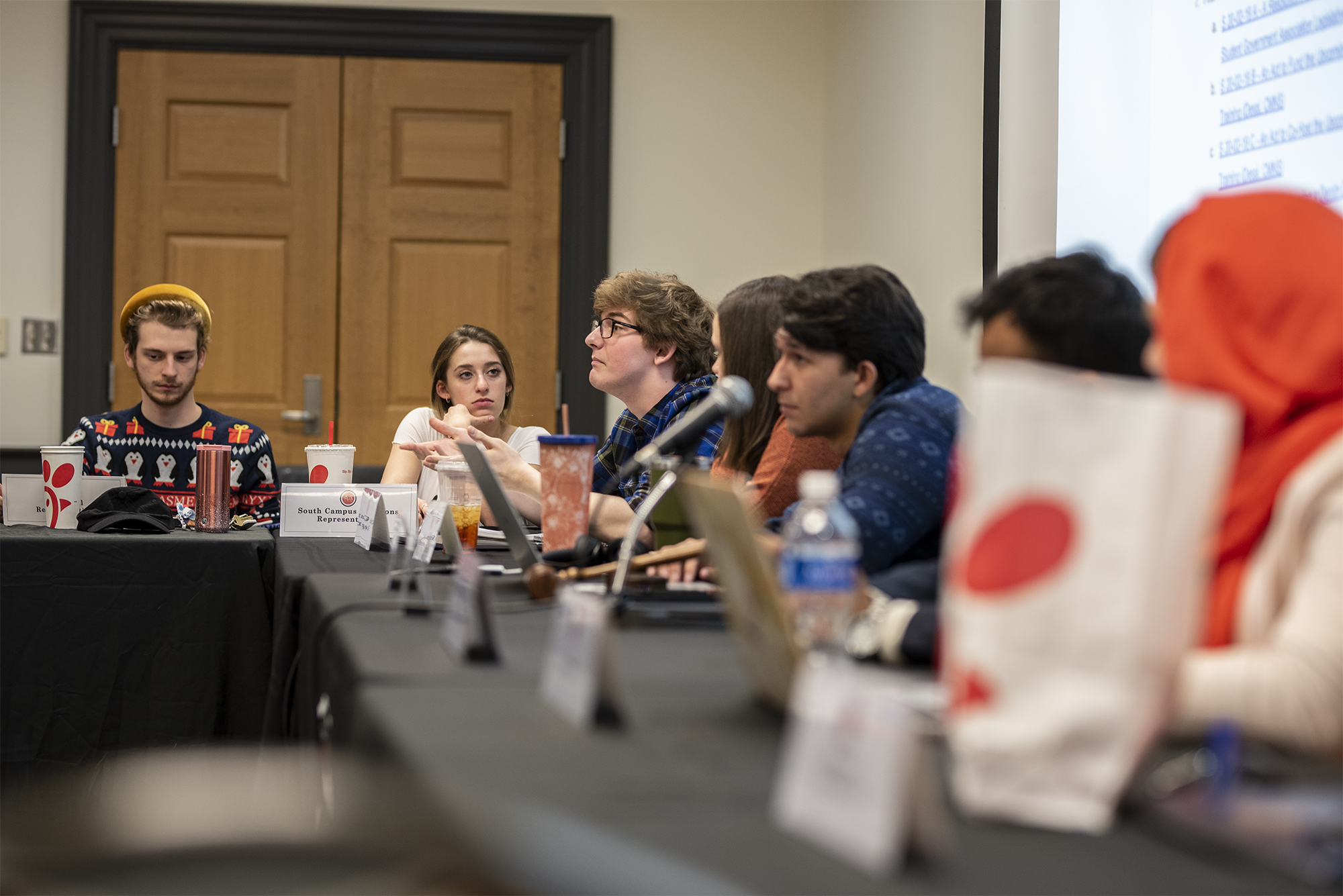The University of Maryland’s SGA voted Wednesday to call on the school’s incoming president to meet with them and hold open forums focused on student concerns.
State officials announced last week that Darryll Pines, current dean of the engineering school, would take over as the university’s president in July. At Wednesday’s meeting, students expressed frustration that their perspectives weren’t valued in the search process.
Student Government Association legislator and bill sponsor, David Pontious, urged his fellow legislators to vote in support of the measure to ensure that the voices of the student body are heard and respected.
“It’s time to forge ahead,” he said. “Making sure the students voices are heard — making sure that we understand what the incoming president’s priorities are, that he understands what our priorities are.”
The resolution received a vote of 31-0 with one abstention.
Hunter Petit, the business representative and one of the avid supporters of the bill, said he believes the vote was a step in the right direction, helping ensure the SGA can continue checking the administration and representing the concerns of a diverse population of students.
[Read more: Students who’ve worked with new UMD president Darryll Pines celebrate announcement]
“If the SGA was given more of a voice in terms of decisions on campus, I think that would be reflective of the diversity of the campus,” he said.
In September, the SGA unanimously passed emergency legislation calling for more student involvement in the search for current President Wallace Loh’s replacement. Prior to the passing of the emergency legislation, the committee handling the selection of presidential finalists held a forum open to students, faculty, and community stakeholders to share their thoughts and ask questions.
Despite their efforts, the “SGA was not informed ahead of time of this major announcement or able to meaningfully participate in the decision in any way,” the resolution read.
Although legislators tried to work with the presidential search committee, the Board of Regents’ student member, and the University System of Maryland’s student council to find solutions to issues of transparency and student engagement, the body was ultimately unable to open up hiring process specifics to student input.
“The biggest [goal] is just building the trust, I think a lot of students don’t feel like their administration seeks out their problems and their stories and their requests,” said SGA president Ireland Lesley. “I’m hoping that [the lack of trust] is a huge culture change that we see with the new administration.”
Moving forward, the SGA hopes to invite Pines to a general body meeting, which they encouraged the community to attend. Legislators want to discuss a wide range of issues, such as the safety of minority students on campus, college affordability and health issues.
[Read more: “An open door policy”: How Darryll Pines plans to rebuild trust as UMD’s next president]
Over Loh’s tenure, he has received criticism for his handling of several scandals that have swept the university in controversy. In May 2017, after a spate of racist incidents across the campus, a black Bowie State student was murdered by a white student who attended this university. In the aftermath, many students of color have expressed concern about their sense of safety and support in College Park.
The next year, Maryland football offensive lineman Jordan McNair died two weeks after suffering heatstroke at an organized team workout. And several months later, student Olivia Paregol died after contracting adenovirus — a virus that ultimately sickened more than 40 students and that Paregol’s parents allege the university failed to communicate adequately about.
All that’s added up to be “a very tumultuous last couple of years,” Pontious said. So, SGA legislators emphasized Wednesday, the administration has work to do in rebuilding its relationship with its community.
“Putting students first can’t just be a slogan,” Pontious said. “Putting students first has to mean listening to students — has to mean constantly, in every kind of action the university takes. Listening to student voices, hearing what they care about, hearing what their positions are about moves the university is taking.”
Last week, Pines told The Diamondback that he hopes to have an “open-door policy” as president. Lesley said she was “cautiously optimistic” for his tenure.
“It’s important for us as the governing body of undergraduate students to be involved in that,” she said. “To be creating a big stance on that and making sure we’re keeping the administration accountable.”



